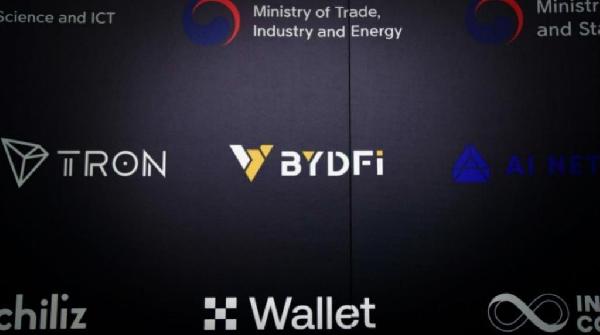HodlX Guest Post Submit Your Post
Web 3.0 founders must start acting like Web 2.0 founders or perish. It’s time for Web 3.0 to grow up.
If teams are going to compete with the technology behemoths of today, they have to abandon the long-held crypto strategy of opacity and secrecy.
-->Instead, they must doxx and present themselves as professionals online and in person in order to gain trust.
Team members – most importantly, executives – should reveal their verified identities online on platforms such as LinkedIn, X and others.
They should participate in conferences – not in hoodies and jeans – but in three-piece suits. It is more likely you will be taken seriously than if you are in the garb of a high schooler.
Moreover, executives in Web 3.0 might consider starting their own podcasts aimed at high-value guests, with whom they might strike up a partnership as the relationship develops.
Doxxed team members from your company’s marketing team can host weekly podcasts with other high-value guests.
Now, just because you have a public profile doesn’t mean you need to sacrifice privacy.
You can still keep information about much of your family private, unless you end up leading a unicorn and skyrocket to global stardom, which happens too few.
Otherwise, your public persona can be strictly professional.
Instead of creating DAOs (decentralized autonomous organizations) out of thin air, register a proper legal entity.
In the US, this might be an LLC or C-Corp in a state such as Wyoming or – to a lesser degree these days – Delaware.
If a DAO is absolutely necessary for your project, the governance must be done in a transparent fashion.
DAOs should publish governance frameworks, as well as voting mechanisms, proposal processes and treasury management. Comply with all regulations. Community managers must be doxxed.
Develop a customer service system to promptly address community feedback. This can be automated with AI tools, and people should receive prompt replies, even if they are automated.
Treat your community as partners. Post truthful and detailed information on development progress on social platforms.
Also share development logs via a public repository, such as GitHub or public Notion boards. The public should know about code commits, bug fixes and roadmap milestones.
Internal decisions should be accompanied by press releases with clear reasoning behind decisions – no jargon. Keep making progress and communicating via social media during bear markets.
Web 3.0 projects often have advisors. All too often, these advisors are the people closest to the founders, not truly strategic partners – and that’s a problem.
Instead of inviting crypto influencers to sit on a board, Web 3.0 founders should invite leading technology billionaires to advise their firms and ensure that once the advisory has been handpicked, it is filled with ardent professionals with track records of success.
The advisors should be excited about the project and available to help. In contracts with advisors, the requirement for ongoing advice might be spelled out.
This group should then be listed, along with their credentials and roles, for all to see.
Legal counsel is essential to ensure your project does not run afoul of any securities law, KYC and AML regulations and tax obligations.
Be public about your dedication to the law. Perhaps for your advisory team, recruit former regulators or legal minds.
Investors want to know for a fact that the company will persist, rather than burn out, fade away or disappear in the night – like so many Web 3.0 projects heretofore.
This is a big fear among the public – especially strategic partners and investors – given such a high failure rate of Web 3.0 projects.
We’ve seen a considerable share of DeFi projects launched fail.
What’s more, those who stick around seemingly have decreasing odds of seeing their token prices regain their old ATHs (all-time highs).
Not a good sign for potential billionaire investors who Web 3.0 founders would love to attract.
To be sure, doxxing a Web 3.0 team is a high-risk, high-reward endeavor as it comes with increased risk of digital and real-life attacks.
Nonetheless, in order to find themselves inside big tech boardrooms, it might help founders to build Web 3.0 projects like the Web 2.0 companies.
Learn from the tech giants of yesterday and today who continue to eat the world with their advancement in AI. 2025 is much different than 2014.
Web 3.0 companies must adapt – and largely, they have not.
If you want to survive in the quickly changing technology landscape, founders have no choice but to doxx their Web 3.0 company.
Founders are not exempt from this rule. This is perhaps the quickest way to separate a Web 3.0 project from the countless other projects that everybody knows are going nowhere.
If the public knows a Web 3.0 team, knows you’re structured like a real company and treat investors as partners, they will see that you are building a company designed to make waves in the overarching technology industry, rather than the Web 3.0 space.
Manouk Termaaten is the founder and CEO of Vertical Studio AI. He is a serial entrepreneur and expert in AI technologies, aiming to make AI accessible for everyone via customization tools and affordable computers.
Follow Us on Twitter Facebook Telegram
Check out the Latest Industry Announcements Disclaimer: Opinions expressed at The Daily Hodl are not investment advice. Investors should do their due diligence before making any high-risk investments in Bitcoin, cryptocurrency or digital assets. Please be advised that your transfers and trades are at your own risk, and any loses you may incur are your responsibility. The Daily Hodl does not recommend the buying or selling of any cryptocurrencies or digital assets, nor is The Daily Hodl an investment advisor. Please note that The Daily Hodl participates in affiliate marketing.
Disclaimer: Opinions expressed at The Daily Hodl are not investment advice. Investors should do their due diligence before making any high-risk investments in Bitcoin, cryptocurrency or digital assets. Please be advised that your transfers and trades are at your own risk, and any loses you may incur are your responsibility. The Daily Hodl does not recommend the buying or selling of any cryptocurrencies or digital assets, nor is The Daily Hodl an investment advisor. Please note that The Daily Hodl participates in affiliate marketing.Generated Image: Midjourney









